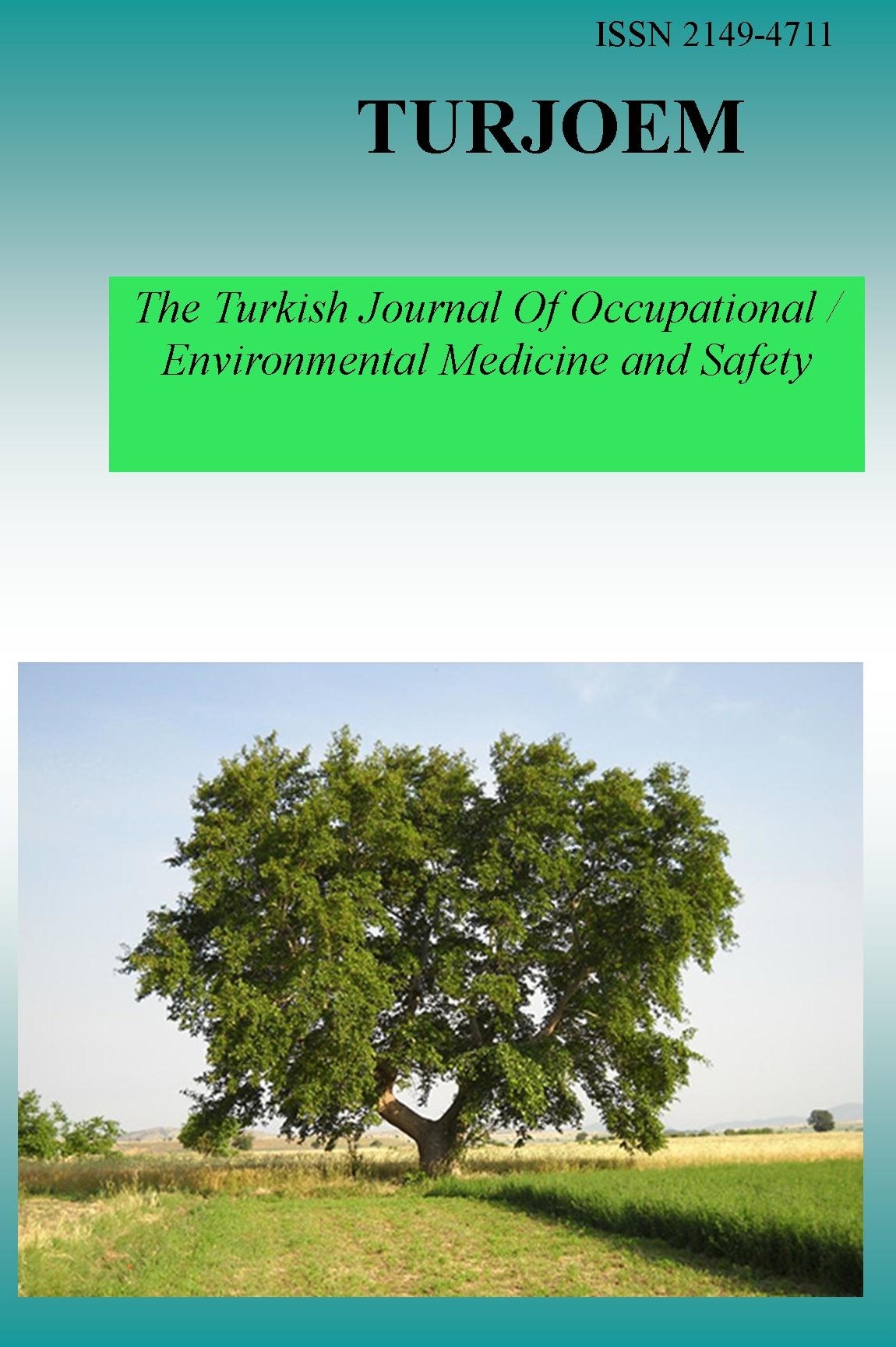CORRELATION OF LUNG DYSFUNCTION ANDSERUMCADMIUM AND LEAD LEVELS AMONG WELDERS
CORRELATION OF LUNG DYSFUNCTION ANDSERUMCADMIUM AND LEAD LEVELS AMONG WELDERS
___
- Department of Occupational Medicine, Hacettepe University Faculty of Medicine, Ankara, Turkey
- Department of Public Health and Primary Care, College of Medicine, Nursing and Health Sciences, Fiji National University, Fiji3 3Department of Family Medicine, Ankara Occupational Diseases Hospital Ankara, Turkey
- Department of Biochemistry, Ankara Occupational Diseases Hospital Ankara, Turkey
- Department of Public Health, YıldırımBeyazıt University Faculty of Medicine Ankara, Turkey
- The Council of Forensic Medicine Ankara, Turkey
- Department of Toxicology, Ankara Occupational Diseases Hospital, Ankara, Turkey
- Department of Medical Humanities and Social Medicine, College of Medicine, Kosin University, Korea
- ISSN: 2149-4711
- Başlangıç: 2015
- Yayıncı: Engin TUTKUN
Zeliha KAYAALTI, Fezile ÖZDEMİR, Fatma CAN, Dilek KAYA- AKYÜZLÜ, Ceylan BAL, Cemil NURAL
EXAMINATION OF GRAINS FOR AFLATOXIN
Halil DEMIREL, M. Kürşat DEMIR
CORRELATION OF LUNG DYSFUNCTION ANDSERUMCADMIUM AND LEAD LEVELS AMONG WELDERS
S.p. CETINTEPE, M. E. ALAGUNEY, D. WILSON, M. GUNDUZOZ, C. BAL, O. H. YILMAZ, S. B. IRITAS, E. TUTKUN, Eun-kee PARK
THE EFFECT OF QUITTING SMOKING ON OXIDATIVE STRESS PARAMETERS
Bicer CEMİLE, Yuksel SEVDA, Cucen ZUBEYDE, Sengezer TİJEN
METAL ACCUMULATION IN SEDIMENT IN THE ALBANIAN PART OF LAKE OHRID
Enis DALO, Rigerta SADIKAJ, Hazbije SAHITI, Linda GRAPCI-KOTÉORI
EFFECT OF SOME BEVERAGES ON THE DROSOPHILA MELANOGASTER SURVIVAL PERCENTAGE
Rabia SARIKAYA, Kübra KARABAY, Figen ERKOÇ
EVALUATION OF STYRENE INDUCED OXIDATIVE STRESS WITH DYNAMIC DISULFIDE/THIOL HOMEOSTASIS
Ceylan BAL, Sultan Pınar ÇETINTEPE, Meşide GÜNDÜZÖZ, Serpil ERDOĞAN, Murat ALIŞIK, Ömer Hınç YILMAZ, Engin TUTKUN, Özcan EREL
LIPEMIA INTERFERENCE ON ETHANOL ASSAY
Özlem DOĞAN, Metin GENÇ, Zihni KARAEREN, Berrin İmge ERGÜDER, Aslıhan AVCI
FORENSIC APPLICATIONS OF INFRARED SPECTROSCOPY
Feride SEVERCAN, Nihal Simsek OZEK
FORENSICALLY IMPORTANT BLOW FLIES (DIPTERA: CALLIPHORIDAE) IN NEVSEHIR PROVINCE, TURKEY
